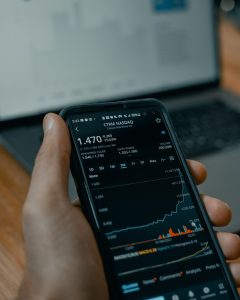Forex or foreign exchange market is the largest financial market in the world, with over $5 trillion traded daily. It is a decentralized market where currencies are bought and sold. One of the most important terms used in forex trading is the ‘spread.’ The spread is the difference between the bid and ask price of a currency pair. It is a crucial concept in forex trading, and understanding it can help traders make better decisions.
In simple terms, the bid price is the price at which the market is willing to buy a currency, and the ask price is the price at which the market is willing to sell a currency. The difference between these two prices is the spread. The spread is usually expressed in pips, which is the smallest unit of measure in forex trading. For example, if the bid price for EUR/USD is 1.1000, and the ask price is 1.1005, then the spread is 5 pips.
The spread is the primary way that forex brokers make money. They offer traders the ability to buy and sell currencies at the interbank exchange rate, but they charge a small commission or markup on each transaction. This commission is usually included in the spread. The spread can vary depending on the currency pair, the liquidity of the market, and the broker’s commission structure.
Why is Spread Important in Forex Trading?
Spread is an essential concept in forex trading because it affects the profitability of a trade. When a trader opens a position, they must pay the spread, which reduces their potential profit. For example, if a trader buys EUR/USD at 1.1005 and sells it at 1.1010, they would make a profit of 5 pips. However, if the spread is 2 pips, the trader would only make a profit of 3 pips, as they would have to pay 2 pips as the spread.
The spread can also affect the cost of trading. For example, if a trader opens a position and holds it for a long time, they would have to pay the spread every day, even if the market does not move. This can add up over time and increase the cost of trading.
Understanding the spread is essential when choosing a forex broker. Different brokers offer different spreads, and some brokers may offer lower spreads than others. However, lower spreads may not always be better, as some brokers may compensate for the lower spread by charging higher commissions or other fees.
Types of Spreads
There are two types of spreads in forex trading: fixed spreads and variable spreads. Fixed spreads remain the same regardless of market conditions, while variable spreads can change depending on market volatility.
Fixed spreads are usually offered by market makers, which are brokers that take the other side of a client’s trade. Market makers can offer fixed spreads because they can hedge their exposure in the interbank market. Fixed spreads are suitable for traders who want to know the exact cost of trading and do not want to be affected by market volatility.
Variable spreads are usually offered by ECN (Electronic Communication Network) brokers. ECN brokers connect traders directly to the interbank market, where prices are determined by supply and demand. Variable spreads can be lower than fixed spreads during normal market conditions, but they can widen during times of high volatility. Variable spreads are suitable for traders who want to take advantage of low spreads during normal market conditions and are willing to accept the risk of wider spreads during volatile market conditions.
Conclusion
The spread is an essential concept in forex trading, and understanding it can help traders make better decisions. The spread affects the profitability of a trade and the cost of trading. Different brokers offer different spreads, and traders should choose a broker that offers a spread that suits their trading style. Traders should also be aware of the different types of spreads and choose a spread that is suitable for their trading strategy.





